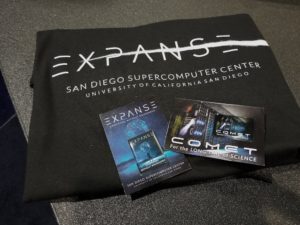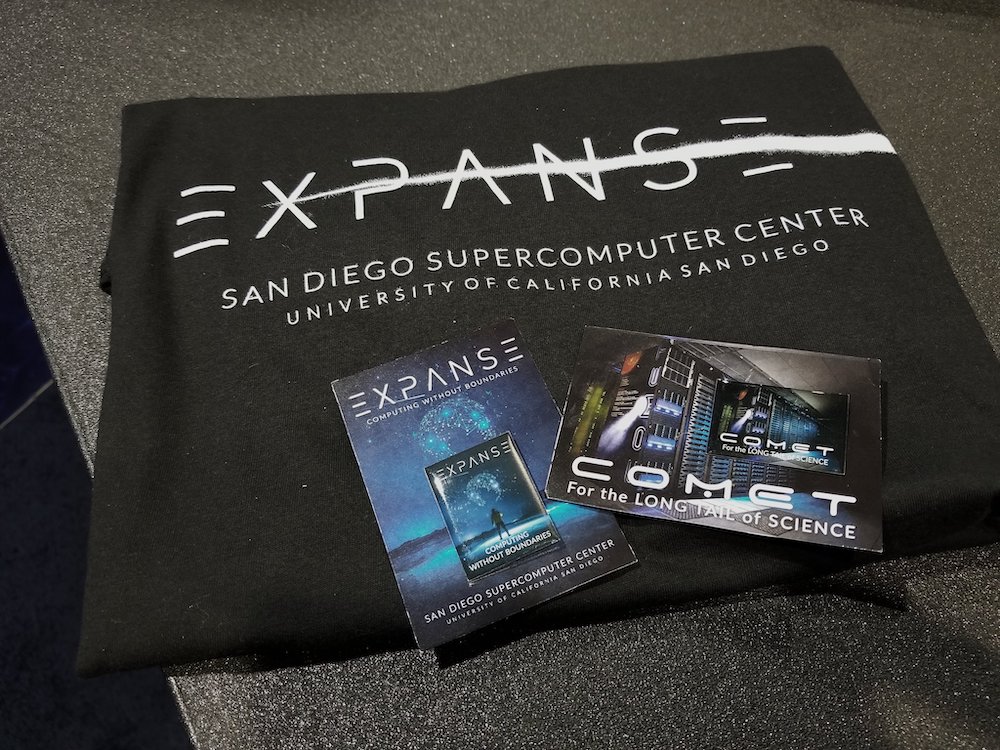 Dell Technologies has been selected to power the next-generation supercomputer at the San Diego Supercomputer Center (SDSC), expected to deploy in mid-2020. SDSC was awarded a five-year, $10 million grant from the National Science Foundation (NSF) to develop and deploy the new Expanse system.
Dell Technologies has been selected to power the next-generation supercomputer at the San Diego Supercomputer Center (SDSC), expected to deploy in mid-2020. SDSC was awarded a five-year, $10 million grant from the National Science Foundation (NSF) to develop and deploy the new Expanse system.Expanse will be an incredibly valuable resource for the scientific and research community, and our team at Dell Technologies is proud to be a part of SDSC’s most powerful system to date,” said Thierry Pellegrino, vice president of High-Performance Computing at Dell Technologies. “Our PowerEdge servers are able to tackle the most intensive workloads, making them the perfect match for SDSC’s newest system that will fuel world class research and unlock the power of data to solve the world’s greatest challenges.”
Designed to support diverse computation and data-intensive workloads, Expanse will be comprised of 728 dual-socket Dell EMC PowerEdge C6525 servers with 2nd Gen AMD EPYC processors connected with Mellanox HDR InfiniBand.
By joining with Dell Technologies to integrate Dell EMC PowerEdge servers with 2nd Gen AMD EPYC processors into our most powerful supercomputer to date, we will be giving the community a powerful resource that will help advance research across a wide range of disciplines,” said SDSC Director Michael Norman, the Principal Investigator (PI) for Expanse, and a computational astrophysicist. “Tens of thousands of researchers will be able to access vast amounts of memory, I/O and cores in the system, expanding our understanding of astronomy, genomics, earth sciences, biology and the social sciences, to name a few.”
With the compute-dense PowerEdge C6525, including next-generation AMD EPYC processors NVIDIA GPUs, Expanse is projected to have a peak performance of up to five petaflops. To match what a five petaflops system can do in just one second, one would have to perform one calculation every second for more than 158 million years. This also nearly doubles the performance of SDSC’s current Comet system, allowing SDSC to support more researchers and projects.
The selection of Dell EMC PowerEdge servers with AMD EPYC by SDSC is a proud moment for our team. Our 2nd Gen AMD EPYC processors with record-breaking performance are designed to meet the highly complex demands of a supercomputing environment,” said Forrest Norrod, senior vice president and general manager of the Datacenter and Embedded Systems Group at AMD. “When the Expanse system comes online in the second half of 2020, it will represent a new peak in performance for SDSC and the research teams that will access its tremendous compute power.”
The new supercomputer will be a key resource within the NSF’s Extreme Science and Engineering Discovery Environment, which comprises the most advanced collection of integrated digital resources and services in the world. More details about the program will be available this week at the SDSC display at the International Conference for High Performance Computing, Networking, Storage and Analysis (SC19) in Denver, Colorado.
Visit Dell Technology at SC19 booth #913.




